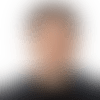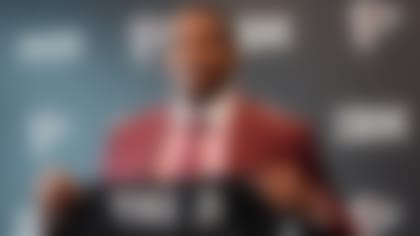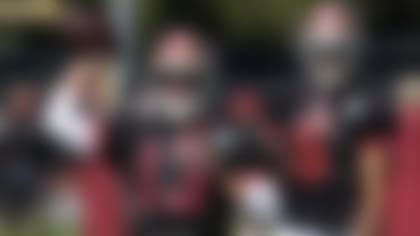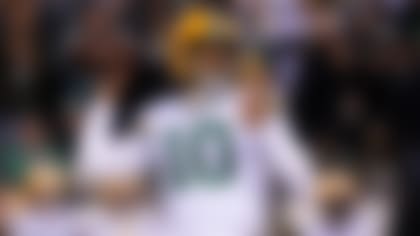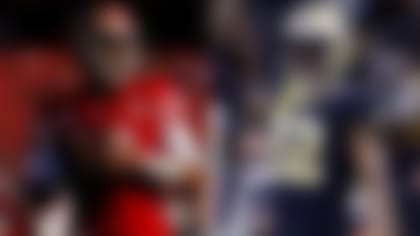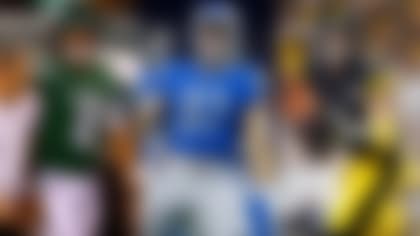MIAMI GARDENS, Fla. -- Andy Reid changed. Whether Patrick Mahomes changed Reid or vice versa will be one of those unanswerable questions that stick to the game's immortals like confetti flicked off before a trophy celebration: What would Montana have been without Walsh? Is Brady more valuable than Belichick?
Merely posing such questions is an insult to the synergistic nature of football. No greatness in the sport exists without collaboration, and there is no greater tandem in today's NFL than the most influential offensive coach of this century paired with the most talented quarterback I've ever watched.
Reid wasn't going to lose another Super Bowl by going down meekly. Fifteen years after a sluggish fourth quarter in the Eagles' SB XXXIX loss to the Patriots fueled Reid's reputation as a late-game bumbler, the Chiefs out-scored the 49ers 21-0 in the final frame on a crisp Sunday night in Miami to give the 21st-year head coach his first championship.
The Chiefs' avalanche of fourth-quarter points will go down in history, but Reid's play-calling in the first half showed how much he's evolved. On fourth down from the 49ers' 5-yard line in the first quarter, Reid eschewed a field goal to call a direct snap to running back Damien Williams, who picked up the first down. The play was like a modern version of the Wing-T offense out of shotgun, as daring as Reid's old assistant Doug Pederson calling "The Philly Special" two years back. Mahomes scored two plays later on an option play, which Reid used a variation of againto convert on fourth down later in the half.
Meanwhile, in a game where possessions were so precious, 49ers coach Kyle Shanahan essentially passed on getting a fourth chance to score in the first half. Shanahan could have had nearly two minutes to move the ball against a leaky Chiefs defense. Instead, he didn't use a timeout when Kansas City's drive petered out at midfield, setting up a fourth-and-13 punt with the clock running. And then he ran the ball twice up the middle in an effort to get to halftime. Reid then took his own timeout, a sign of faith in his defense that nearly backfired. Anything to get Mahomes the ball again. If the situations were reversed, it's impossible to imagine Reid sitting on the ball. He's spent his career searching for a player like Mahomes and now calls every game like it's the last one on the schedule. Shanahan lacked that clarity.
"The last thing we were going to do is allow them to get the ball with three timeouts, especially with their quarterback and offensive speed to go in there and score before the half. Felt real good (at) 10-10, especially with us starting with the ball (in the second half)," Shanahan said after the game, his tone similar to the one he used in the aftermath of Atlanta blowing a 28-3 lead in the Super Bowl three years ago, when Shanahan was the Falcons' offensive coordinator. Shanahan took way too much blame for staying aggressive in that game after his players didn't execute. The criticism is more warranted this time, because he coached not to lose. When San Francisco had a chance to go for a fourth-and-2 in the opening drive of the second half, Shanahan took a field goal at a time his team was averaging 7.6 yards per play.
The teams' defenses also diverged in approach. The 49ers' game plan was to keep everything in front of them, dare the Chiefs to run and make Mahomes earn every yard. It worked to perfection until midway through the fourth quarter, when the 24-year-old let loose on a third-and-15 to Tyreek Hill after 49ers CB Emmanuel Moseley bit on an underneath route, leading to the 44-yard gain. On a night when San Francisco held Kansas City to just 5.3 yards per play, the Chiefs still put up 31 points in nine drives before they ran out the clock.
When the Chiefs' offense started to throw haymakers in the fourth quarter, their defense followed suit. Defensive coordinator Steve Spagnuolo began blitzing with authority, and Jimmy Garoppolo did not react well. The Niners QB either didn't see where the pressure was coming from, held on to the ball too long or had his passes deflected by Chiefs defenders like DE Chris Jones and CB Kendall Fuller, who both made some serious money Sunday night as they approach free agency. (More on that below.) Reid hired Spags in the offseason for games like this. The Chiefs' defense didn't need to be dominant; the unit just needed to force a few mistakes each week and let Mahomes do the rest.
In the fourth quarter, Jimmy G wound up completing 3 of 11 passes for 36 yards and an interception, missing on what could have been a go-ahead 49-yard touchdown to Emmanuel Sanders with under two minutes left. Which brings me back to my original point about the parceling of credit that goes on after Super Bowls. On third-and-10 with 1:40 left, needing a first down to keep the game alive, Shanahan didn't make a "safe" call. He dialed up a shot play and trusted his quarterback. Sanders got open, and Garoppolo didn't deliver. If that one play goes differently, perhaps Reid's breakthrough title never happens. Perhaps Shanahan is getting love in this article.
That's the thing about assigning blame, in addition to credit. There's no one answer. Garoppolo could have saved some of Shanahan's tepid decision-making with one heroic throw, but instead they will both face questions for the remainder of this offseason and beyond.
Shanahan coached Garoppolo in the Super Bowl like he still wasn't entirely sure what kind of quarterback he has. Reid has no such doubts. Mahomes' extraordinary talent has changed "Big Red" for the better, and now there's no separating the two.
BIGGEST OFFSEASON QUESTIONS FOR THE CHIEFS
1) How can the team upgrade the defense, with Chris Jones headed for free agency?
General manager Brett Veach is in a tough spot. While the offense is what makes the Chiefs special, there is work to be done just to maintain the defense's improvement to average this season. The defense's best player, Jones, is headed for free agency. The Super Bowl was a great reminder of how valuable the 6-foot-6, 310-pounder is, even when he doesn't fill the stat sheet. His pressure directly led to an interception, and his batted passes ended drives. Jones is a strong candidate for the franchise tag, but spending that money could be tricky, because the team has under $17 million in cap space entering the offseason, per Over The Cap.
Injured defensive end Emmanuel Ogbah and in-season pickup Terrell Suggs are also free agents. Starting members of the secondary like Kendall Fuller and Bashaud Breeland don't have contracts. Both were absolutely vital to the team's Super Bowl win. Veach has proven creative and bold in the past (think: the Frank Clark trade), so don't be surprised if there are some defensive personnel fireworks again.
2) Will the team bring back Sammy Watkins?
As the question above indicates, the Chiefs have a lot to accomplish this offseason without a ton of cap flexibility. They could create more money to spend by releasing wideout Sammy Watkins. He's scheduled to cost $21 million against the cap, and they could save $14 million by cutting him.
Before the playoffs started, I assumed Watkins was a goner. After 288 yards in three weeks -- including 98 in the Super Bowl -- it will be tougher to cut Watkins now.
Some other veterans who could be at risk of being cap casualties include linebacker Damien Wilson, defensive end Alex Okafor and safety Daniel Sorensen.
3) Will the Chiefs extend Patrick Mahomes by training camp?
Chiefs owner Clark Hunt attempted to temper expectations for Mahomes' eventual megadeal during Super Bowl week, putting a rather cautious timeline of getting something done "sometime in the next 12 to 15 months." The Chiefs can afford to be patient because they have Mahomes under contract for two more seasons, including what would be the fifth-year option on his rookie contract in 2021.
Then again, Mahomes would be the most underpaid player in the history of the NFL if he played next season at his scheduled $2.7 million. He's already been the league MVP and a Super Bowl MVP. Even if Mahomes gets the largest contract ever, he's not going to get any cheaper as he gets closer to free agency. I'd be surprised if talks don't heat up after April's draft.
BIGGEST OFFSEASON QUESTIONS FOR THE 49ERS
1) Do they make Emmanuel Sanders a free-agent priority over Arik Armstead?
The 49ers' roster is loaded with talent and doesn't have many holes. That said, general manager John Lynch may not be able to spend as freely entering his fourth season in command with a relative paucity in cap room: $13.9 million, 26th in the league, according to Over The Cap. The 49ers only have three starters hitting free agency, although they all played key roles down the stretch: Sanders, Armstead and defensive back Jimmie Ward.
Sanders fits so well, adding veteran savvy at a young position, that I suspect he'll be the priority for the 49ers. Kyle Shanahan wanted to work with Sanders for years, and it's hard to imagine the relationship only lasting half a season. Armstead, coming off a career year, will probably find his best deal elsewhere. As great as Armstead has been, the contracts for Dee Ford, DeForest Buckner and Nick Bosa make the defensive line rather expensive.
2) How does Kyle Shanahan re-shape his backfield?
This is what's called "a good problem to have." If the 49ers are looking to open up some cap space, they could potentially release injured running back Jerick McKinnon or even Tevin Coleman. Shanahan has shown he doesn't need to spend at the position, especially with Raheem Mostert and Matt Breida (a restricted free agent) in line to return. Wide receiver Marquise Goodwin also looks like a potential cut to save some cap room.
3) Can the 49ers hold off the best division in football?
Going from the Senior Bowl to the Super Bowl was a remarkable achievement. Overcoming the heartbreak from this Super Bowl to hold off the rest of the NFC West could be even tougher. The 2018 NFC Champion Rams will be positioned to rebound. The Seahawks gave the 49ers more problems than any team this year and still have Russell Wilson. The Cardinals are a team on the upswing with Kyler Murray. There is a risk of the entire division beating each other up next season, making a playoff bye exceedingly difficult.
Follow Gregg Rosenthal on Twitter @greggrosenthal.
